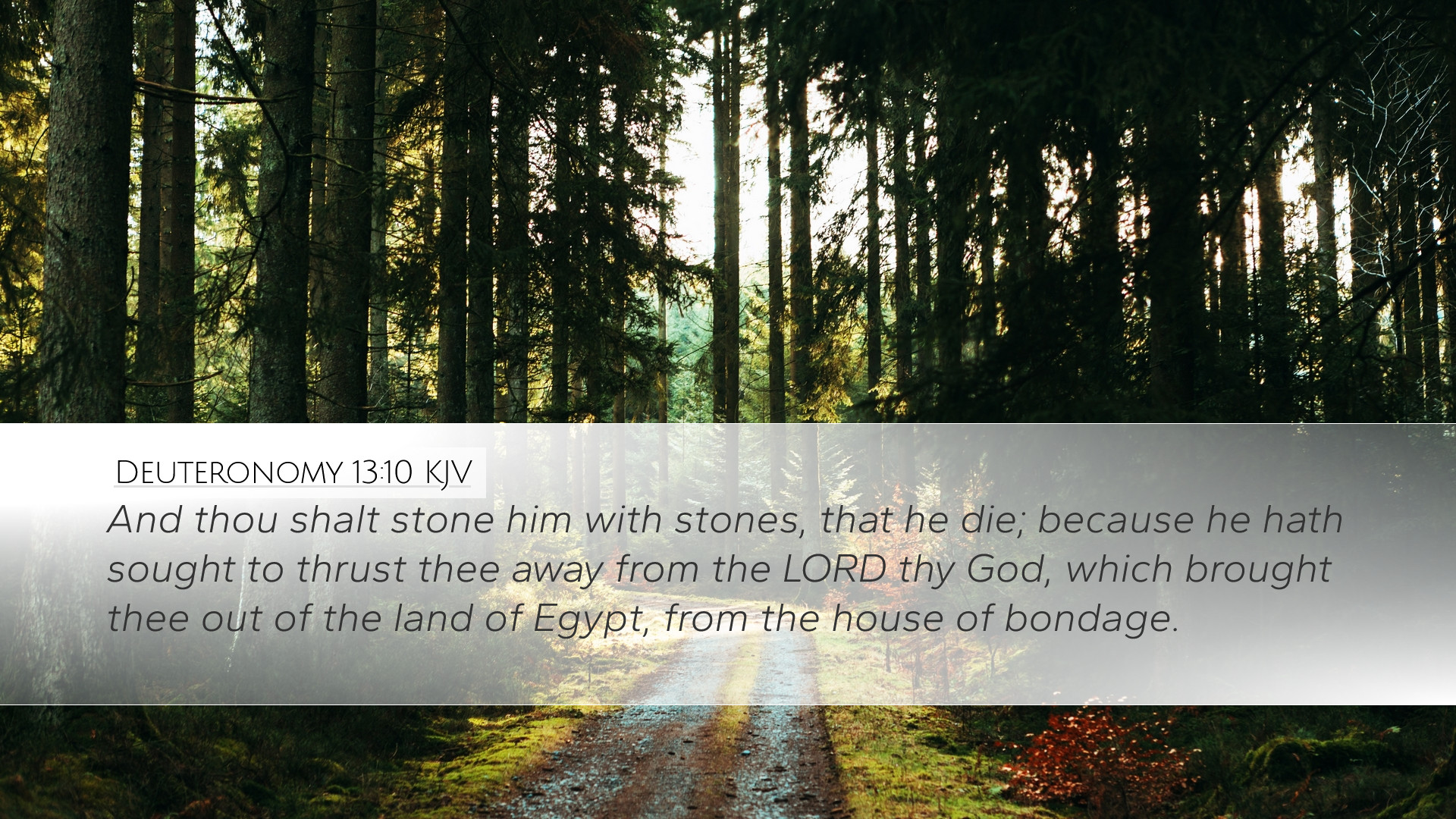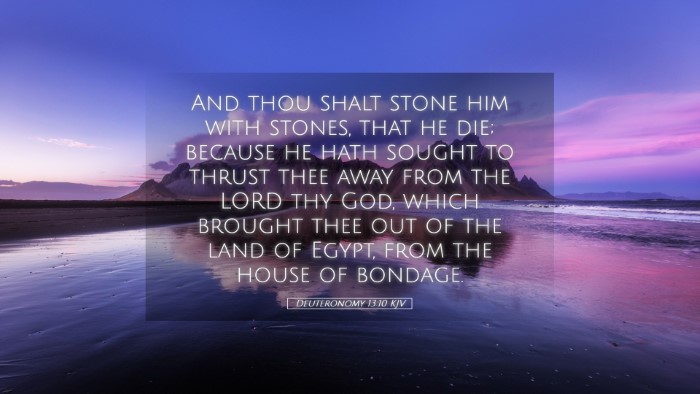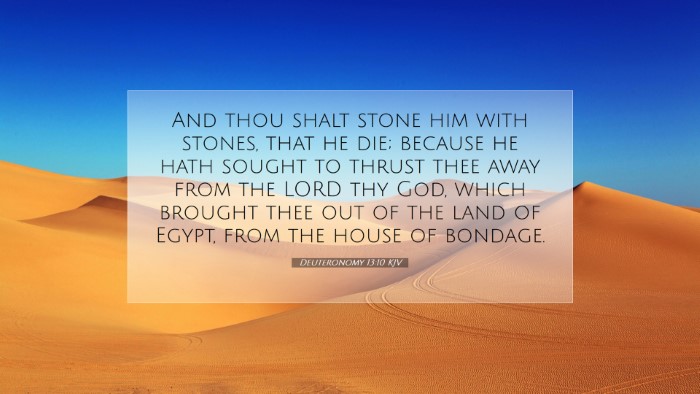Commentary on Deuteronomy 13:10
Verse: “And you shall stone him to death with stones, because he has sought to draw you away from the Lord your God, who brought you out of the land of Egypt, out of the house of bondage.”
Introduction
This verse forms a crucial part of the Mosaic law, establishing the severe consequences of leading the people of Israel away from worshiping the one true God. The theological underpinnings of this command reflect the seriousness with which God views idolatry and apostasy.
Historical Context
The context of Deuteronomy is significant for understanding this command. Israel is at a pivotal moment in their history, poised to enter the Promised Land after a long period of wandering in the wilderness. Moses, reflecting on the covenant relationship between God and His people, emphasizes the need for fidelity to God's commandments.
Matthew Henry's Insights
According to Matthew Henry, this verse serves as a forewarning against internal corruption within Israel. He notes that the threat of apostasy could arise not just from external nations but from within the community itself. Henry emphasizes that drawing away from God is a grave sin, as it directly contradicts the nature of the covenant Israel has entered into with God.
Albert Barnes's Interpretation
Albert Barnes points out that such punishments underscore the seriousness of idolatry in the ancient Israelite community. He elucidates that the stoning represents both a civic responsibility and a spiritual imperative; it serves to purify the community and maintain its commitment to God's exclusivity. Barnes argues that this illustrates the fierce loyalty that should characterize God's people.
Adam Clarke's Commentary
Adam Clarke stresses the communal responsibility of Israel to uphold the worship of Yahweh. He interprets the act of stoning as a measure necessary to safeguard the sanctity of worship. Clarke notes that this punishment was not only physical but also reflective of the spiritual death that comes from disloyalty to God, aligning with the community's identity as God's chosen people.
Theological Implications
The implications of this verse extend beyond its historical and cultural context. The seriousness of leading others astray is emphasized throughout Scripture, echoing in the New Testament where false teachings are condemned. The commitment to God requires a zeal that sometimes necessitates difficult actions to maintain fidelity.
Contemporary Application
For pastors and theologians today, this verse serves as a piercing reminder of the dangers of compromise in faith. Modern parallels can be drawn to various forms of idolatry and distractions from genuine faithfulness to God. The commitment to the truth and purity of worship remains a priority for the church, emphasizing vigilance and accountability within the community.
Conclusion
Deuteronomy 13:10 encapsulates critical themes of loyalty, community integrity, and the severe consequences of leading others away from God. By examining the insights from respected commentators like Matthew Henry, Albert Barnes, and Adam Clarke, we gain richer understanding of this significant scripture. As pastors and scholars reflect on this text, it ignites a conversation about how to both protect and nurture faith within the community, ensuring that the heart of worship remains focused solely on the true God.


